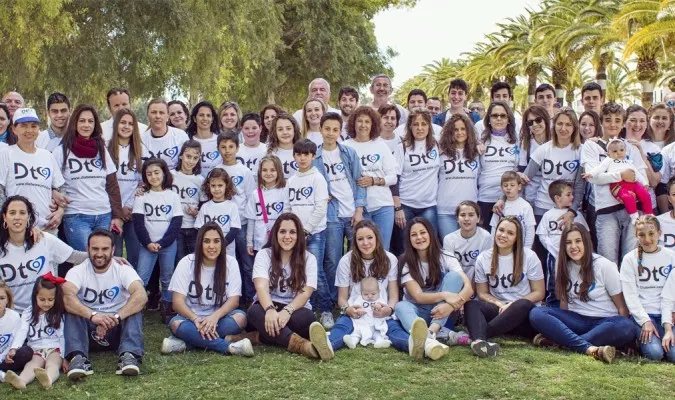Is children's diabetes cure?In Diabetescero they are clear that.And they also have perfectly clear that it is essential to fight to find the cure for this disease."Because it is a curable disease and, if society struggles to find the cure, we will find it," they sentence.
Because to find a solution to type 1 diabetes, a diabetescerThe objective of financing research projects for the cure of this disease.
Six innovative scientific projects prepared by the most prestigious Spanish institutions in research for the cure of type 1 diabetes are presented in this first national diabetescero congress, which has brought together more than four hundred people during this weekend in the city of theTowers
Two of the projects are from Sevillian laboratories - one of them is headed by the prestigious professional and former Minister of Health Bernat Soria -, two others are from institutions in Barcelona, one from Badalona and another of Barakaldo (Vizcaya).

Of those six projects, three will receive 25,000 euros each to continue investigating the cure of type 1 diabetes. That money has been collected by Diabetescero during their three years of life, organizing meetings, markets, participating in beneficial activities, sporting events andcultural
And now they find the best possible destination: contribute to finding adequate treatment against children's diabetes."It is money achieved with much effort, because we have no rich patron behind," explains Isabel Mérida, Diabetescero directive."It is money, the truth, very fought and perhaps the most beautiful thing that will be reversed in research," he emphasizes.
The diabetescero is the first congress of its species that is organized in Spain.Open to families who know the disease because they suffer and experts who work in their treatment.The collective is a movement of parents of children with diabetes who raise money for the investigation of the disease.
"We were born three years ago, when a group of parents did not resign themselves to their children living the rest of their lives with this pathology without them and we fight along the way," summarizes Mérida."We visit scientists in their laboratories and we see what they lack, whether personnel or technology," the Diabetescero directive continues, "we place on our website those research in a colloquial language and raise money."
Finally, three years after being born, this movement of fathers and mothers has raised enough to celebrate their first congress and scholarship scientists who work to cure their children's disease.Of course, the choice will not be quite theirs.
«We are not doctors or scientists, and to be able to select the investigations we have three scientific advisors, doctors Ramón Gomis, professor of the Department of Medicine of the University of Barcelona and director of the Institute of Biomedical Research Ausgust Pi i Sunyer (Idibaps), among others;Dr. Luis Castaño, president of the Spanish Society of Pediatric Endocrinology, scientific director of the Research Laboratory of the Bio-Cruces Institute and the Bio-Cruces University Hospital of Bilbao and researcher at CIBERDEM;and Dr. Manuel Aguilar, director of the UGC of Endocrinology and Nutrition at the University Hospital of Puerta del Mar de Cádiz and former director of the Comprehensive Diabetes Plan of Andalusia, ”says Mérida.
And why in Écija?«Between Écija and Arahal this movement emerged, and we wantedhonor this city, ”replies Isabel Mérida.
«It would be perhaps easier to make this congress in Madrid, in Bilbao or in Seville.But Écija was the first site, along with Arahal, who founded this movement ».The research that opts for the scholarship is of a scientific level of difficult colloquial translation.They are works that go from cell regeneration to the use of nanotechnology.
But they all have the common denominator of looking for a way to stop the destruction of beta cells - insulin producers - and their regeneration.Because type 1 diabetes is that the patient's immune system interprets that these beta cells are a virus and destroys them, condemning the diabetic to a food discipline and a blood sugar control.


